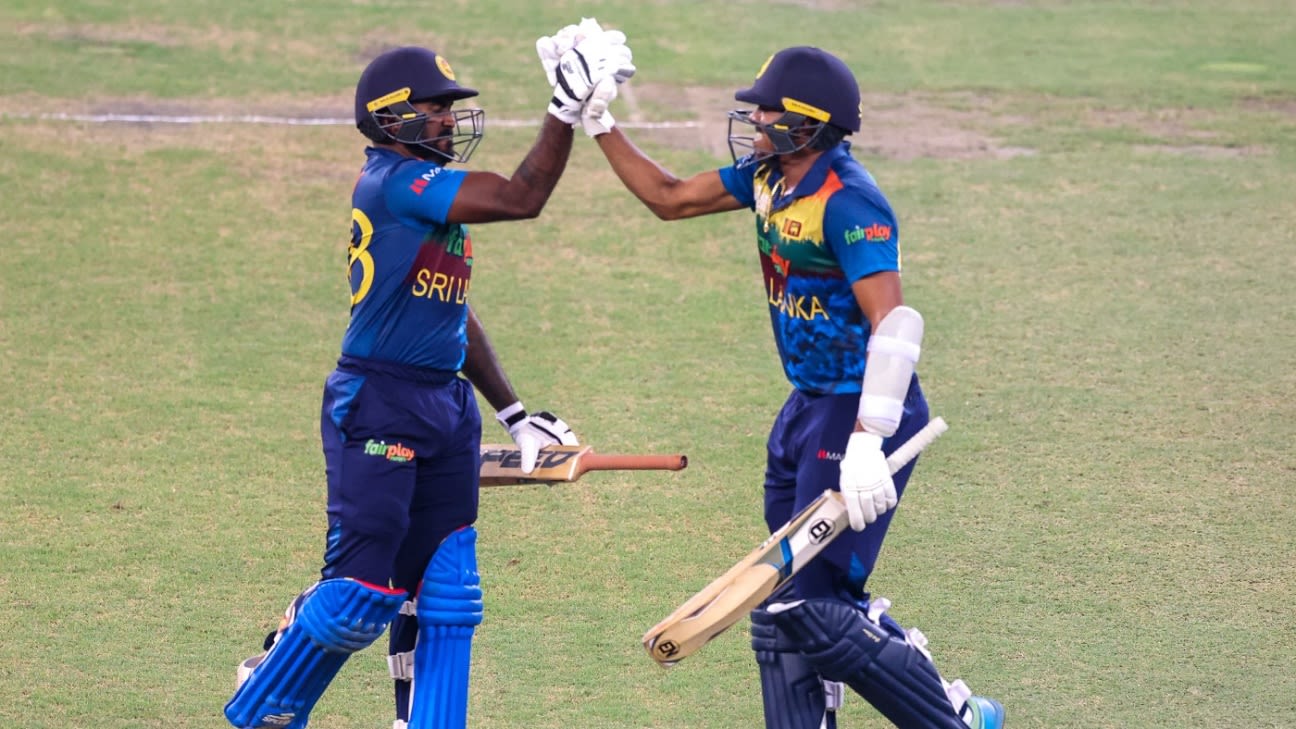His second no-ball came in the last over when Sri Lanka needed three runs off four deliveries. In a comical turn of events, as soon as Asitha Fernando and Maheesh Theekshana ran two, they heard the buzzer that pointed to Mahedi’s no-ball. Soon enough, the giant screens flashed the replay and Bangladesh knew their fate had been sealed. This moment was particularly disappointing for Shakib as he reflected on the team’s performance under pressure, and their early exit from the competition.
“No captain wants no-balls from their team,” Shakib said. “It is a big crime when a spinner bowls a no-ball. We bowled a lot of wides and no-balls today. We were not disciplined. We didn’t know what to do when we were under pressure. We knew Kusal (Mendis) plays spin really well, so if we could get him early, it would have set platform for our spinners to come into the game.
“But till he was there, it was hard for our spinners to bowl. He was dropped on two, and then when he was out, it was a no-ball. The spinner bowling a no-ball is a big no-no. Our spinners usually don’t bowl no-balls, but today it was proved that we break down under pressure. We are losing in crunch moments. If we won 50 per cent of the close matches, we would have a better record in this format.”
What also hurt Bangladesh was Ebadot Hossain’s inconsistency in his final two overs which went for 38. The penultimate over, especially, turned the tide Sri Lanka’s way as he conceded 17, including a no-ball and a wide. This undid all his good work until then. At the end of his first two overs, he had unreal figures of 3 for 13.
“Ebadot has never played a pressure game like this, regardless of his experience,” Shakib said. “He has a lot to understand. He brought us into the game after his first two overs. We thought it was going to be his day. You expect a bowler to have good rhythm and be positive when he has taken three wickets in his first two overs. It wasn’t to be. He can learn a lot from this game.
“Our plan was to get their batsmen out. That’s exactly what we did. They needed 25 or 26 in the last two overs. Eight wickets down, you back your main bowlers to defend those runs against their tail.”
Looking ahead to the World Cup, Shakib underlined the importance of having to identify the best fast bowlers soon. “This was an eye-opener to see how we bowl in pressure situations,” he said. “You can expect good 10-12 overs of fast bowling in this type of pitch. Only those who can deliver will be in the team.
“It is simple math. We looked at four fast bowlers here, and we will look at more in the tri-series in New Zealand so that we have a clearer idea who can do well in Australia.”
Shakib then focused on the few positives from the tournament. Like how the move to bump up Mehidy Hasan Miraz to open the innings in his first T20I in nearly four years, worked.
Mehidy responded with an aggressive 26-ball 38, hitting two fours and as many sixes. Shakib said this was something they had contemplated against Afghanistan too, before going in with regulars Mohammad Naim and Anamul Haque.
“He has done well in our domestic tournaments, so we had faith in him,” Shakib said of Mehidy’s promotion. “Even in the first game, he was in the mix to bat in the top-order. He didn’t play the first game. He showed his character today. He wasn’t nervous. He was playing after three years so it wasn’t easy for him. You have to give him a lot of credit, the way he handled the pressure in the first six overs.”
Shakib also asked for a bit of patience from everyone as they try to work out plans going into the T20 World Cup. For starters, he was encouraged by the team’s attitude and body language.
“I have returned to T20I captaincy with these two matches. We have a lot in mind when we make a new beginning. Our planning started with the game against Afghanistan, so there will be right and wrong.
“We have a plan in place. We want to reach a goal slowly. But if you notice our attitude and body language in these two games, despite the poor approach in batting in the first game, I think we have improved from our last three or four series.”
Mohammad Isam is ESPNcricinfo’s Bangladesh correspondent. @isam84
